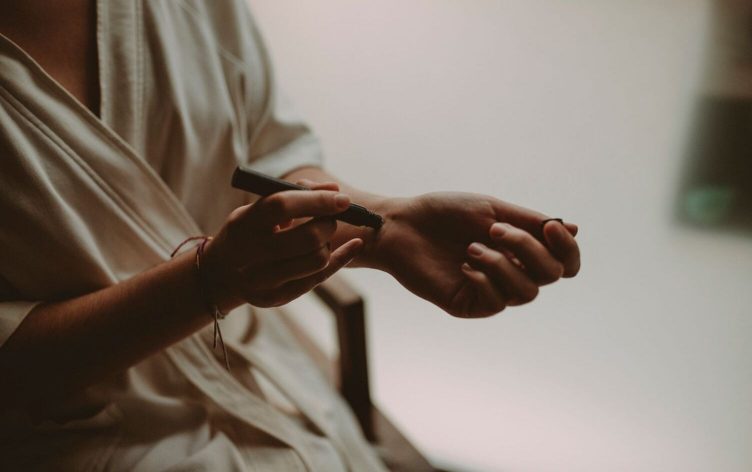
The Nighttime Timeline That’ll Help You Sleep Better
In a perfect world, our heads would hit the pillow, we’d close our eyes, and suddenly it’d be morning. The thing is, for many of us, sleep just doesn’t come that easy.
These days, everything from work stress to our TV screens messes with our ability to score quality shut-eye. To maximize your sleep, you’ve got to get your evening routine right. Follow this hour-by-hour timeline tonight and you’ll doze off no problem.

Sometimes an evening HIIT class is the only time we can squeeze a workout into our busy schedules, but it’s not ideal to work out 2–3 hours before bed if you want to settle down for sleep without issue.
“From a sleep perspective, the best time to do vigorous exercise is in the afternoon or early evening,” says William Moorcroft, PhD, behavioral sleep medicine specialist and author of “Mindfulness for Insomnia.” Intense workouts spike your adrenaline and put your body in ‘high-alert’ mode, so you’ll want to give your body a few hours to wind down before going to bed.
If you want to add some movement to your evenings, stick to yoga or stretching, Moorcroft recommends.

Dietitian Jenna Appel, MS, RDN, recommends eating your last meal (or snack) about three hours before turning in for the night to give your body ample time to digest your food before focusing on sleep. Plus, eating too close to bedtime can cause heartburn or acid reflux, says Appel.
When it comes to what to eat, “your last meal of the day should include a balance of vegetables, lean protein, whole grains and healthy fats,” Appel says. This balance helps keep your blood sugar stable, so you’re not hungry right before bed or woken up by a blood sugar drop in the middle of the night.
For snacks, stick to a 200-calorie portion that contains a balance of high-fiber carbohydrates and satisfying protein, Appel adds. (Again, it’s all about keeping you satisfied and your blood sugar stable.) Two solid options: whole-grain crackers with cheese or an apple with peanut butter.
If you can, Appel recommends incorporating dairy, poultry, seafood or nuts and seeds into your evening eats. All of these foods contain tryptophan, “an amino acid the body turns into serotonin, which it then converts into the ‘sleep hormone’ melatonin,” explains Appel.
Foods and drinks to avoid include anything caffeinated (soda and chocolate, included), alcohol, spicy foods and anything sugary or greasy — all of which can disrupt your sleep quality in one way or another.

Need a little something after your last snack or meal of the day? Appel recommends sipping on a calming herbal tea, like chamomile, ginger or peppermint.
You can also cozy up with a mug of green tea, which contains theanine, an amino acid that promotes relaxation and relieves stress. “Just be mindful to choose a caffeine-free green tea,” Appel says.
Also, skip the spoonful of sugar, “which can make it difficult to fall asleep and disrupt your sleep cycles,” Appel adds.
Want to switch up your nighttime beverage? Try tart cherry juice, which contains high amounts of melatonin, says Appel. (A serving is 8 ounces.)
Whatever soothing drink you choose, make sure to sip at least two hours before bed, so you don’t end up waking up to pee during the night.

If racing thoughts and worries leave you staring at the ceiling come bedtime, Moorcroft recommends jotting them down earlier in the evening.
Buy a pack of 3-by-5 index cards and write a concern — no matter how trivial or ginormous — on each card, says Moorcroft. Then, divide the cards into 3–5 categories. (These categories can be ‘job worries,’ ‘money worries,’ ‘big worries,’ ‘stupid worries,’ whatever you want.) Finally, write down a potential solution for each worry on the card, if you can think of one.
Return to your cards as needed in the evening to toss worries that are no longer relevant and add new ones that pop up. “It’s a great, easy way to process the worries and concerns that sometimes interfere with your sleep,” Moorcroft says.
Another tip: Write down your to-do list for the next day, so you’re not running through it when your head hits the pillow.
Two hours ahead should be enough of a buffer between these activities and bedtime so you can let go of your worries and focus on relaxing before calling it a night.

As tempting as it may be to finish the latest season of your favorite Netflix show in bed, catching that latest plot twist won’t help you catch any zzz’s.
“As a rule of thumb, it’s generally best to avoid screens for about an hour before bedtime,” says Moorcroft. The blue light emitted by our electronics can hinder melatonin production and disrupt our circadian rhythm (the ‘internal clock’ that regulates our energy throughout the day and sleepiness after sundown.)

How to occupy yourself before bed if you aren’t watching TV or scrolling through Instagram? Try mindfulness meditation, which involves sitting quietly and focusing on your breathing. “It’s a great way to quiet down,” Moorcroft says.
According to a 2015 review published in Nature Reviews: Neuroscience, mindfulness meditation has been shown to promote emotional regulation and overall well-being and reduce stress.

Whether in a diffuser, a spray bottle or roll-on, essential oils can help set the mood for a quality snooze.
“I love using essential oils in my bedtime regimen,” says Appel. “Before bed, I spray my pillow with a mixture of lavender and frankincense essential oils for their calming and relaxing effects.”






























